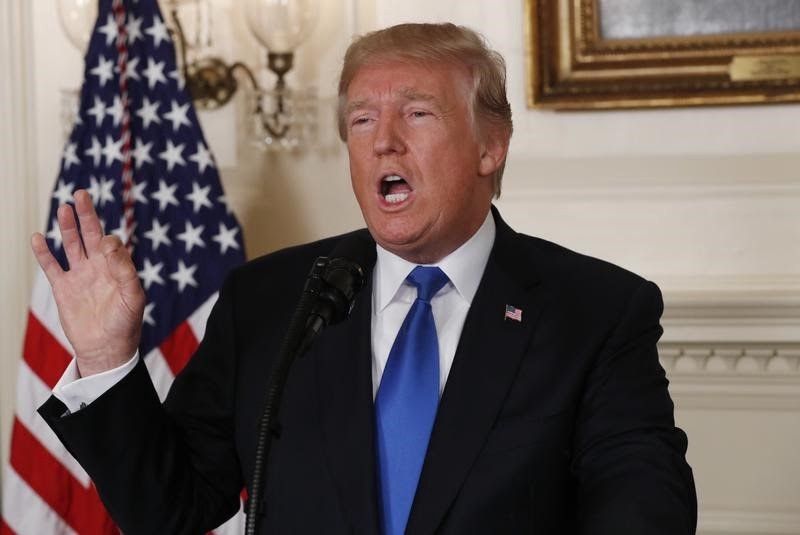May 08, 2018
At 2pm today, President Trump will present the most consequential foreign policy decision he has made since taking office. Speaking from the White House, he’s set to announce whether the United States will continue to adhere to the Iran nuclear deal.
As a reminder, under that 2015 deal, the US and five other countries agreed to ease sanctions on the Islamic Republic in exchange for a verifiable halt to its nuclear program.
Although the international inspectors responsible for oversight of the deal say Iran has abided by its commitments, Trump and other hawks in the US government (along with Israeli PM Benjamin Netanyahu) point out three shortcomings: it doesn’t prohibit Iran from developing and testing long-range missiles, it allows limits on nuclear testing to lapse in the coming years, and it does nothing to punish Iran for expanding its regional influence via more conventional means. All true, though viable alternatives to the deal remain unclear.
Mr. Trump will explain today whether the US intends to withdraw from the deal and, if so, whether he will reimpose sanctions on Iran’s oil exports and possibly other sectors as well. Trump can’t kill the deal entirely, because France, Germany, the UK, China and Russia have all agreed to it. But US sanctions would blow a large hole in it, forcing the remaining signatories to decide whether to patch it up and carry on as best they can, or to scrap it entirely.
The fate of the Iran nuclear deal is one of the biggest geopolitical dramas of the year — Trump will have us all tuned in at 2pm for the next act.
More For You
- YouTube
In this Quick Take, Ian Bremmer weighs in on the politicization of the Olympics after comments by Team USA freestyle skier Hunter Hess sparked backlash about patriotism and national representation.
Most Popular
Bad Bunny during the Super Bowl LX halftime show press conference at Moscone Center.
Kirby Lee-Imagn Images
100 million: The number of people expected to watch the Super Bowl halftime performance with Bad Bunny, the Puerto Rican superstar and newly minted Album of the Year winner at the Grammys.
Alysa Liu of Team USA during Women Single Skating Short Program team event at the Winter Olympic Games in Milano Cortina, Italy, on February 6, 2026.
Raniero Corbelletti/AFLO
Brazilian skiers, American ICE agents, Israeli bobsledders – this is just a smattering of the fascinating characters that will be present at this year’s Winter Olympics. Yet the focus will be a different country, one that isn’t formally competing: Russia.
What We’re Watching: Big week for elections, US and China make trade deals, Suicide bombing in Pakistan
Feb 06, 2026
Japanese Prime Minister Sanae Takaichi, president of the Liberal Democratic Party (LDP), appeals for a candidate during a street speech of the House of Representatives Election Campaign in Shintomi Town, Miyazaki Prefecture on February 6, 2026. The Lower House election will feature voting and counting on February 8th.
The Yomiuri Shimbun
Japanese voters head to the polls on Sunday in a snap election for the national legislature’s lower house, called just three months into Prime Minister Sanae Takaichi’s tenure.
© 2025 GZERO Media. All Rights Reserved | A Eurasia Group media company.
